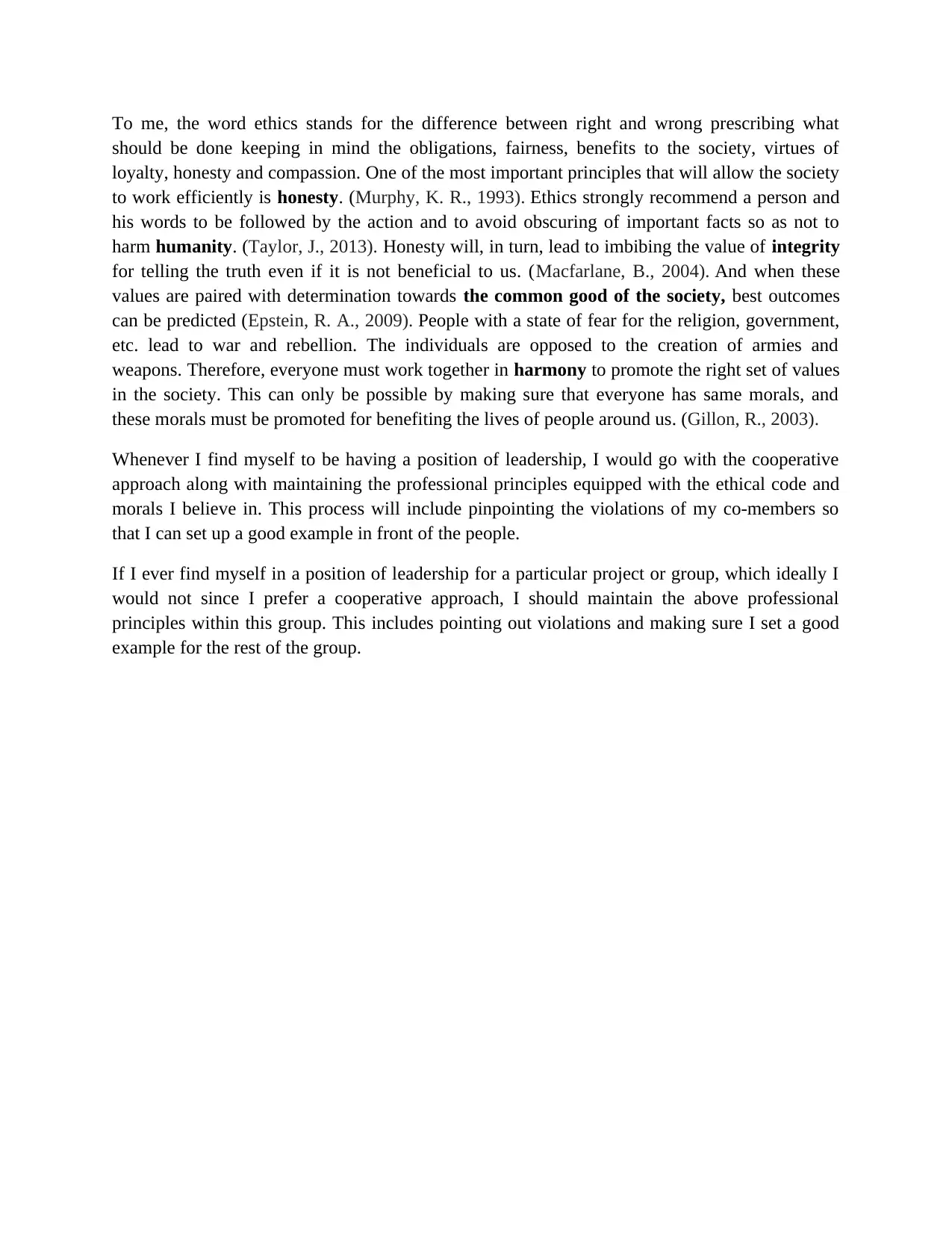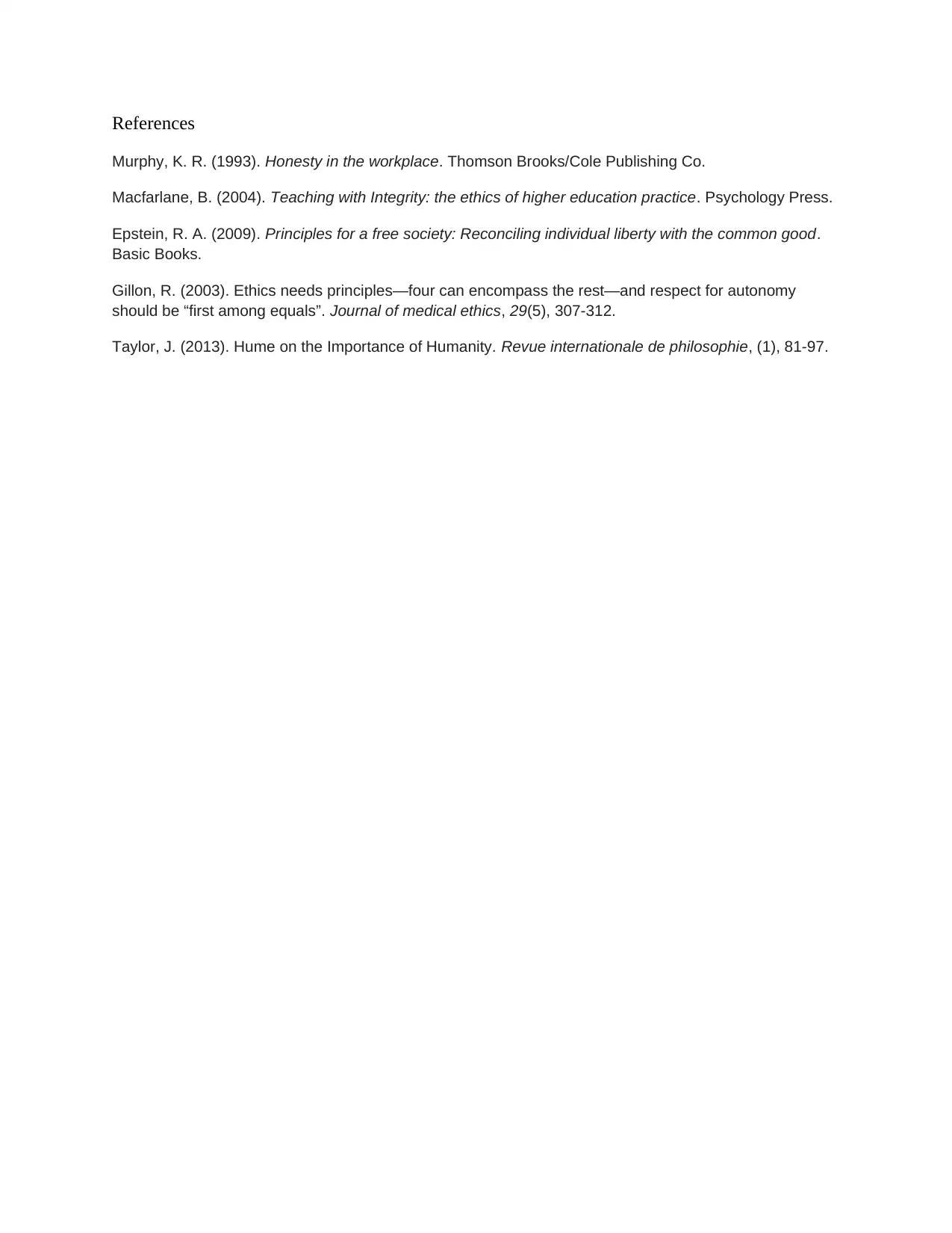The Role of Ethics in Effective Leadership: An Essay
VerifiedAdded on 2019/09/22
|2
|504
|362
Essay
AI Summary
This essay explores the critical role of ethics in leadership, emphasizing the significance of honesty, integrity, and the promotion of societal well-being. It references key principles such as fairness, loyalty, and compassion, highlighting their importance in creating a positive and ethical work environment. The essay discusses the impact of ethical leadership on fostering cooperation and setting a good example for others. It suggests a cooperative approach to leadership, focusing on the importance of upholding professional principles, identifying ethical violations, and promoting a shared sense of responsibility within a team. The essay also references academic sources that support the concepts of ethics and leadership.
1 out of 2


![[object Object]](/_next/static/media/star-bottom.7253800d.svg)